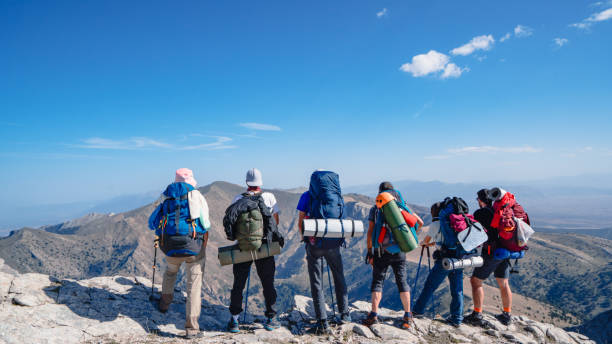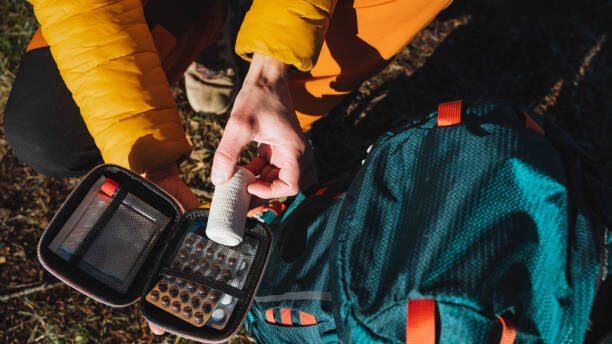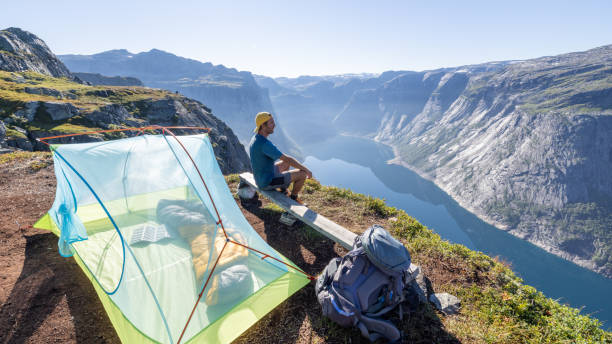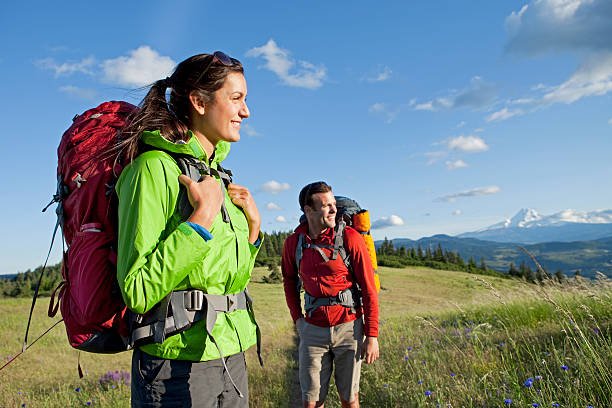Contents
- 1 Backpacking Camping Challenges
- 2 Why go for Backpacking Camping
- 3 Conclusion: Embracing Adventure with Preparation
- 4 Frequently Asked Questions (FAQ)
- 4.0.1 Q: What are the essential items I need to bring for backpacking camping?
- 4.0.2 Q: How can I stay safe during backpacking camping trips?
- 4.0.3 Q: What should I do if I encounter unexpected obstacles or emergencies during my trip?
- 4.0.4 Q: How can I minimize my environmental impact while backpacking camping?
- 4.0.5 Q: What are some tips for beginners planning their first backpacking camping trip?
Backpacking Camping Challenges
Backpacking camping presents unique challenges that test adventurers’ resolve. Navigating rugged terrain, unpredictable weather, and encounters with wildlife require careful preparation and resilience. Limited resources, isolation, and equipment malfunctions add layers of complexity to the experience. Despite these challenges, backpackers embrace the opportunity for self-reliance, skill development, and connection with nature. Overcoming obstacles becomes part of the adventure, fueling a sense of accomplishment and forging lasting memories amidst the wilderness.

Why go for Backpacking Camping
Backpacking camping offers a chance to embrace simplicity and minimalism. With only essential items carried on one’s back, it fosters a deeper appreciation for life’s necessities. This minimalist approach encourages individuals to detach from material possessions and focus on the beauty of the natural world. By stripping away distractions, backpackers can immerse themselves fully in the wilderness experience, finding joy in the simplicity of their surroundings. This simplicity not only lightens the physical load but also nourishes the soul, offering a sense of freedom and contentment amidst the great outdoors.
Introduction to Backpacking Camping Challenges
Backpacking camping offers unparalleled adventure, but it also presents unique challenges that require preparation and resilience. From rugged terrains to unpredictable weather, navigating the wilderness demands careful planning and the right mindset.
-
- Research Your Destination: Before embarking on your backpacking trip, thoroughly research the terrain, climate, and potential hazards of your chosen destination. Use reliable sources such as park websites, guidebooks, and local ranger stations.
-
- Pack Wisely: Choose lightweight and versatile gear suited for the challenges you may face. Prioritize essentials such as a durable tent, sleeping bag, cooking equipment, navigation tools, and first aid supplies.
-
- Plan Your Route: Create a detailed itinerary outlining your planned route, campsites, and emergency exits. Consider factors such as distance, elevation gain, water sources, and potential obstacles along the way.
-
- Check Weather Conditions: Stay informed about weather forecasts for your camping dates and location. Be prepared for sudden changes in weather and adjust your plans accordingly to ensure your safety.
-
- Leave No Trace: Practice Leave No Trace principles to minimize your environmental impact and preserve the wilderness for future generations. Dispose of waste properly, respect wildlife, and leave natural areas undisturbed.

Essential Gear for Challenging Terrains
Navigating challenging terrains requires specialized gear designed to withstand rugged conditions and enhance your comfort and safety.
-
- Quality Footwear: Invest in sturdy hiking boots with good ankle support and traction to prevent injuries on uneven terrain.
-
- Navigation Tools: Carry a map, compass, and GPS device to stay oriented and navigate unfamiliar trails with confidence.
-
- Water Filtration System: Ensure access to clean drinking water by carrying a reliable water filtration or purification system.
-
- Emergency Shelter: Pack a lightweight and durable shelter such as a tent or emergency bivy sack to provide protection from the elements in case of unexpected circumstances.
-
- Layered Clothing: Dress in moisture-wicking layers to regulate your body temperature and stay comfortable in varying weather conditions.

Safety Tips for Remote Camping
When venturing into remote wilderness areas, prioritize safety to mitigate risks and ensure a memorable and enjoyable experience.
-
- Share Your Itinerary: Inform a trusted friend or family member of your itinerary, including your planned route, campsites, and expected return date.
-
- Carry Emergency Essentials: Pack a well-stocked first aid kit, emergency signaling devices, and extra food and water to prepare for unforeseen emergencies.
-
- Stay Hydrated and Nourished: Drink plenty of water and eat nutritious meals to maintain your energy levels and prevent dehydration and fatigue.
-
- Practice Fire Safety: Follow fire regulations and guidelines, and use caution when building and extinguishing campfires to prevent wildfires.
-
- Wildlife Awareness: Educate yourself about the wildlife species in the area and take precautions to avoid encounters. Store food securely and respect animals’ habitats.
Overcoming Obstacles in the Wilderness
Despite careful planning, unexpected obstacles may arise during your backpacking adventure. Stay adaptable and resourceful to overcome challenges effectively.
-
- Stay Calm and Assess the Situation: In case of emergencies or unexpected obstacles, remain calm and assess the situation before taking action. Panic can exacerbate the problem.
-
- Problem-Solving Skills: Develop problem-solving skills to troubleshoot common issues such as equipment malfunctions, navigation errors, or inclement weather.
-
- Seek Shelter and Safety: Prioritize your safety and seek shelter in adverse conditions. Use your emergency shelter, find natural shelters, or retreat to a safe location until conditions improve.
-
- Communicate Effectively: Maintain clear communication with your hiking partners or emergency services if needed. Signal for help using signaling devices or by creating visible signs in open areas.
-
- Learn from Challenges: View challenges as opportunities for growth and learning. Reflect on your experiences, identify areas for improvement, and adapt your strategies for future adventures.

Conclusion: Embracing Adventure with Preparation
Backpacking camping offers unparalleled opportunities for adventure and exploration in the great outdoors. By equipping yourself with the right gear, knowledge, and mindset, you can overcome unique challenges and create lasting memories amidst nature’s beauty. Remember to prioritize safety, practice Leave No Trace principles, and embrace the thrill of the wilderness with confidence and preparation.
Frequently Asked Questions (FAQ)
Q: What are the essential items I need to bring for backpacking camping?
Q: How can I stay safe during backpacking camping trips?
Q: What should I do if I encounter unexpected obstacles or emergencies during my trip?
Q: How can I minimize my environmental impact while backpacking camping?
Q: What are some tips for beginners planning their first backpacking camping trip?


